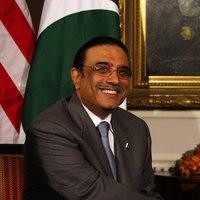The latest assault in Mumbai has brought fresh tensions to fragile India-Pakistan relations at a time when the Pakistani government had made unprecedented friendly overtures toward its traditional rival. The attacks -- which at latest count claimed more than 170 lives, while injuring over three hundred -- took place just three days after Pakistan's President Asif Ali Zardari proposed a "no first nuclear strike" policy with India. According to early news reports, one of the captured attackers revealed under questioning that he was from Pakistan's Punjab province, belonged to the banned extremist group Lashkar-e-Taiba (LeT), and had been trained in militant camps inside Pakistan. LeT, which has denied any responsibility, is one of the Islamist extremist groups that experts say in the past received backing from Pakistan's military intelligence agency, the Inter-Services Intelligence (ISI), to fight in Indian-administered Kashmir. Pakistan's government, among the first to condemn the attacks, denied accusations of responsibility and extended its cooperation, even agreeing initially to send the head of the ISI to India to assist the investigations. Pakistan has since reversed this decision, agreeing to send a senior ISI official on the trip instead. A formerly unknown group, calling itself the Deccan Mujahideen, claimed responsibility for the latest attacks in emails sent to Indian media outlets. However, because of the time, resources, skill, training, and coordination required to carry out such an attack, most analysts believe that the Deccan Mujahideen is a front for one of the bigger, better-known militant groups, even if none of the latter have so far claimed responsibility.
Mumbai Attacks Put Scrutiny on Pakistan’s ISI

